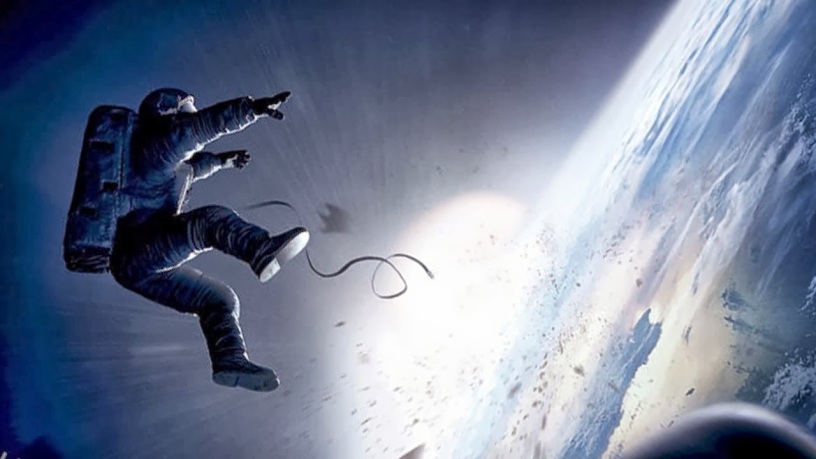For as many films as we’ve gotten about space over the years, very few of them are actually about space. The worlds of Star Trek and Star Wars are metaphors representing more grounded themes, and even Aliendirector Ridley Scott described his classic as a haunted house in space. Alfonso Cuaron’s Gravity, however, is a true space film, deriving its thrills and horrors from the fear of outer space itself.
Gravity has certainly earned much of the praise it has earned. It is rich with dazzling visuals and often terrifying sequences, of Sandra Bullock’s Dr. Ryan Stone barely clinging on to survive. Its strengths, though, come awfully close to being Gravity’s weakness – for nearly an hour we go through conflict-solution, conflict-solution. As thrilling as it is, this movie frequently becomes an exploitative experience.
After the turmoil, though, what lasts is its more long-term storytelling methods. A sense of order is created through key missions (such as approaching the Chinese space station, using escape pods to leave for Earth, etc.), orienting the viewer through what is otherwise a dizzying adventure. This narrative clarity also spills over into the film’s themes of survival and determination, and holding to heart one vision in order to survive.
This makes me question the re-watchability of this film; since so much of its meat is spent on these momentary thrills (however excellently crafted), there isn’t that much emotional punch to invite additional viewings.


